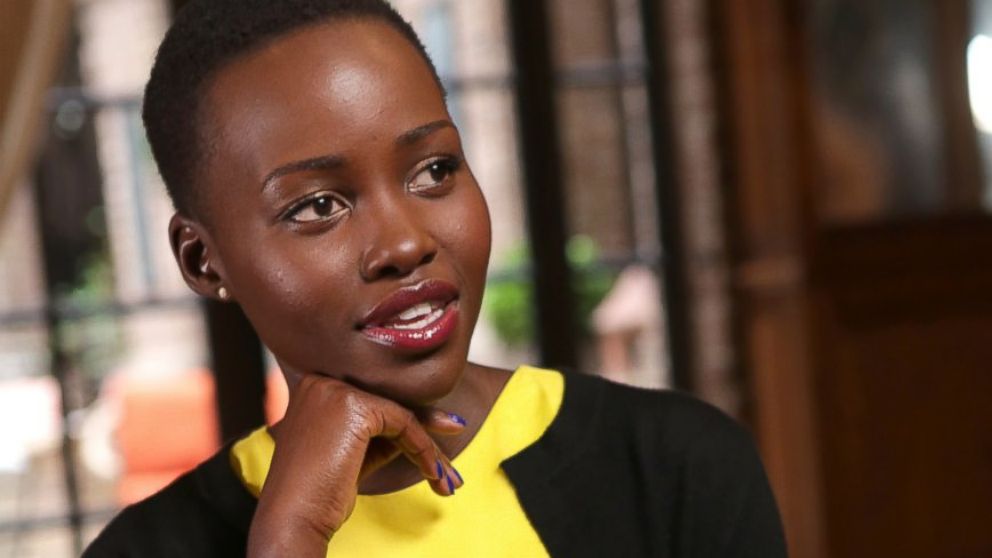Lupita Nyong'o's Stirring Message: Dark Skin Is Beautiful
Oscar winner has ignited a new conversation about race and beauty.

April 24, 2014— -- Hollywood’s new “it” girl Lupita Nyong’o is igniting not only her dazzling career but also a national conversation about race, skin color and what it means to be beautiful.
Fresh off of winning an Academy Award for her searing performance in “12 Years a Slave,” the 31-year-old actress has quickly become a fashion icon. She was named People magazine’s “Most Beautiful Woman” on Wednesday, and just last month, she signed a lucrative deal to become the first African spokeswoman for make-up giant, Lancôme.
It’s a barrier broken, and, as the new face of Lancôme, it’s a chance to redefine beauty.
“Now I’m here and I know I’m not alone,” Nyong’o said. “There have been others before me that have made it possible for me to be here in this position, and I don’t think it’s up to me to change it."
Companies such as Lancôme and the media have a role to play, too, she said. "I think it’s a joint effort.”
“We’ve become more visible. People like me,” Nyong'o added.
Watch the full story on "Nightline" tonight at 12:35 a.m. ET
Nyong’o said she wants the rest of the world to embrace that dark skin is beautiful and should be celebrated -– a message that still flies in the face of painful stereotypes.
“Whether we like to admit it or not, the media plays a really big role in how we see ourselves,” Nyong’o said. “The media is a mirror of what’s important, what’s relevant, what’s valid.”
Accepting an award at the Essence Black Women in Hollywood luncheon, Nyong’o, a native of Kenya, read a letter from a fan that said she was about to use a skin-lightening product when Nyong’o “appeared on the world map and saved me.”
Seventy-seven percent of women in Nigeria reportedly use skin-lightening cream on a regular basis, and in other African countries, it’s as high as 59 percent, according to the World Health Organization.
Nyong’o herself said she struggled with the dark color of her skin as a teenager, but learned to accept it as beautiful. The turning point for her, she said, was when she was 16 and her parents sent her to Mexico.
“One day I was in a market place and my friend introduced me to a friend of hers who was this Mexican photographer, and he asked whether he could take my picture,” she said. “I said yes and he took my picture and it really, just being in front of his lens and him wanting to capture me was such a confidence booster and I felt so beautiful.”
READ: Lupita Nyong'o Named People's 'Most Beautiful Woman'
Nyong’o also found refuge in movies. She said that when she watched the 1985 film “The Color Purple,” starring Oprah Winfrey, and saw that the characters looked like her, that something took hold.
“For them to have hair like mine and they are dark like me and they are telling a story -- that was really early in my life when I wasn’t necessarily thinking about race,” Nyong’o said. “But I just saw a mirror of myself and I just felt understood and there was a relationship with the sisters that was really moving to me.”
“It was just such a moving story and I just felt very connected to all of those characters,” she added. “It was at the time I was starting to realize that this is something people do for a living.”
Soon, Nyong’o would land on the big screen. Just as she was finishing drama school at Yale, director Steve McQueen was searching for his muse for “12 Years a Slave,” when she auditioned for him.




